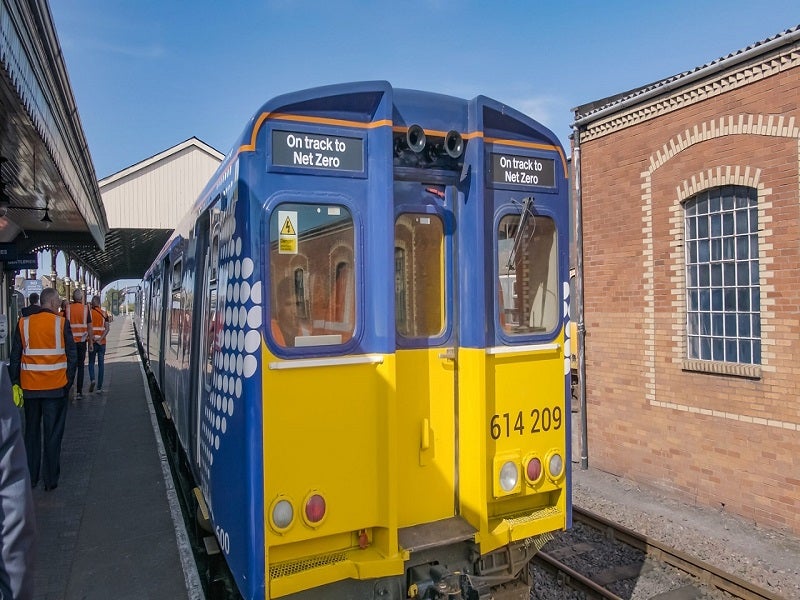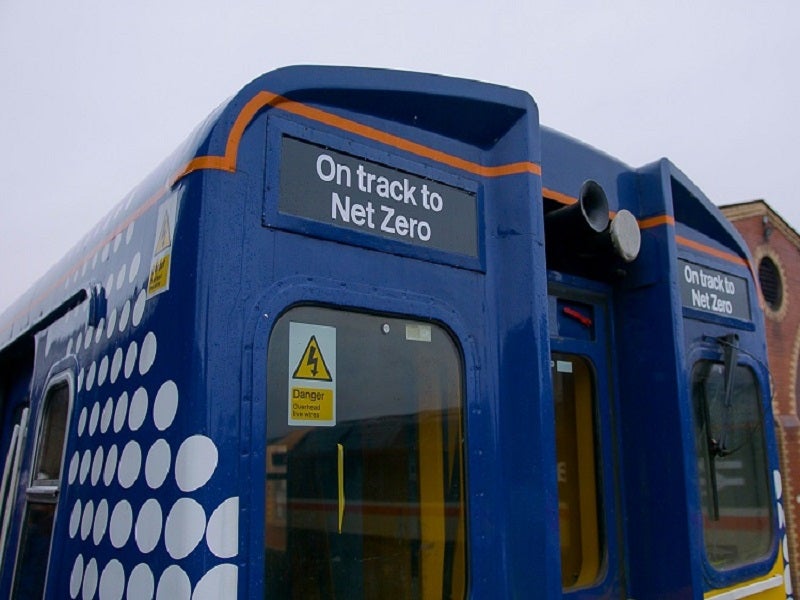The Scottish hydrogen train project involves the demonstration of hydrogen technology as part of plans to transform the future of the rail industry in the country.
The project involves the design, installation, and demonstration of a hydrogen-powered train to support the development of the technology.
It is being implemented in five phases, namely concept design, technical proofing, operational proofing on national network, pilot service operations, and deployment. The concept design phase was completed in 2020 while deployment is planned for between 2026 and 2027.
Demonstration and testing of the hydrogen train project
The hydrogen train project was showcased at the UN Climate Change Conference in Glasgow (COP26) in November 2021.
The demonstration train was tested at the Scottish Rail Preservation Society in Bo’ness in August 2022. The testing included multiple workshops to define the strategy for the decarbonisation of railways in the country.
Hydrogen train project details
A 40-year-old, three-car, former Scotrail Class 314 train has been converted into a platform for the development of the hydrogen-powered fuel cell electric powertrain, as part of the hydrogen train project.
The train will serve as a development platform for local suppliers and academics to test and develop hydrogen technology for the decarbonisation of railways.
Funding for the Scottish hydrogen train project
A hydrogen accelerator was established at the University of St Andrews with the help of funding, worth £300,000 ($385,644), from the Scottish Government in July 2020. Working in partnership with other institutions in Scotland, it aims to foster innovations in hydrogen technology for sustainable transportation applications to help achieve the country’s net-zero and decarbonisation goals.
Angel Trains, a rolling stock asset manager based in the UK, provided £500,000 ($704,515) to support the development of green hydrogen refuelling infrastructure for the project.
Transport Scotland and Scottish Enterprise also funded the project.
Benefits of the hydrogen train project
The demonstration project is expected to support the Scottish Government’s ambitions to decarbonise the passenger rail industry by 2035.
The plan includes phasing out diesel passenger trains by 2035. Hydrogen is being explored as a potential sustainable alternative to diesel trains. Furthermore, the project is expected to generate employment and improve capabilities while also expanding the supply chain in the country.
The integration of alternative traction power supply equipment in the hydrogen train is also expected to serve as a model for the future implementation of the technology in other obsolete and in-service passenger trains.
Project partners and contractors involved
The hydrogen train demonstration project is being led by Scottish Enterprise, in collaboration with Transport Scotland, and the hydrogen accelerator at the University of St. Andrews, which is responsible for project facilitation.
The second phase of the project is being executed by an industrial team comprising Ballard Motive Solutions (formerly Arcola Energy), Arup, Abbott Risk Consulting (ARC), AEGIS, and Angel Trains.
Ballard Motive Solutions was appointed to provide the design, engineering, and integration of hydrogen fuel cell systems, as well as project demonstration services.
Arup is providing rail engineering consultancy services for technical concepts, high-level design, and safety strategies for the project.
ARC was engaged to provide expertise in the areas of product compliance, functional safety, and health and safety management.
Third-party compliance verification and safety certification services are being provided by Aegis Engineering Systems.
In addition to the investment to support the mobile refueller infrastructure, Angel Trains is also responsible for providing rolling stock expertise and technical guidance, as well as the supply of parts and equipment.






